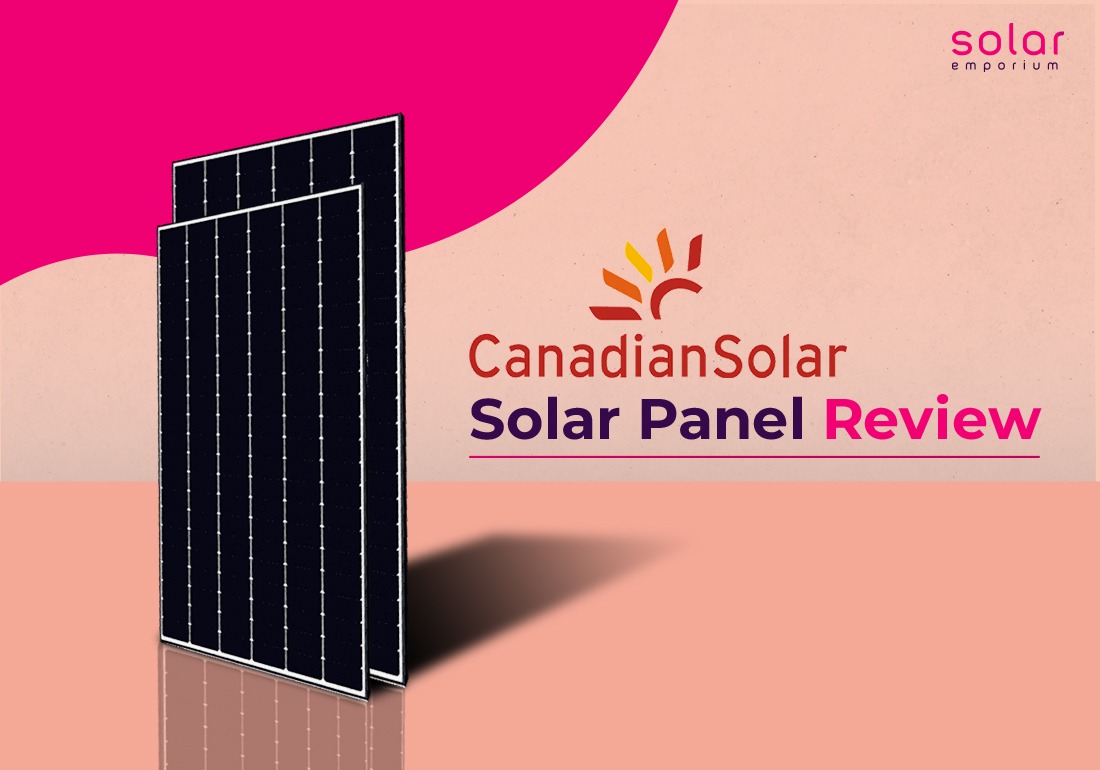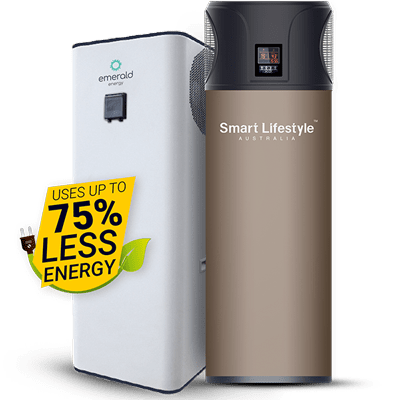Many countries have realized the harmful effects of fossil fuels and are trying to reduce their carbon footprint. Technology is improving, and countries are adapting to new ways to use renewable and sustainable energy. Consequently, the entire renewable market is on the rise. Especially, the Australian renewable industry is booming because of multiple government rebates and incentives to encourage energy efficiency. As a result, solar energy solutions have seen a positive shift since solar is a huge part of renewable energy. This brings us to the “Canadian Solar – Solar Panel review.”
In this article, we will discuss the leading global manufacturer of solar panels.
Quick Summary
- Power ratings (Watts): 350W – 665W
- Panel Efficiency %: High – 19.4% – 21.3%
- Most efficient panel: HiKu7 with 600W
- Cell technology: P-type and N-type TOPCon
- Price range: Low-med
- Product Warranty: Standard 12 years (25 years for 370W and below panels)
- Service and support: Good 4/5
- Overall rating: 8.5
Overview of Canadian Solar
Canadian Solar is a Tier 1 solar panel company. This company has been in business for over 20 years. Dr. Shawn Xiaohua Qu established Canadian Solar in 2001. He remains the Chairman, President, and Chief Executive Officer. Canadian Solar was listed on the NASDAQ in 2006. Although the majority of its production is in China, Canadian Solar has two manufacturing facilities in Ontario, Canada.
According to Bloomberg NEF, Canadian Solar has the world’s fifth-largest solar panel manufacturing capacity and is expanding its presence in Australia. They have four warehouses across Australia and employ 50 locals in solar panel sales and service, as well as large-scale solar farm projects.
In March 2020, the Canadian Solar research and development team created an n-type poly-crystalline silicon solar cell with a world record efficiency of 23.81%. The world’s most efficient residential solar panel currently has an efficiency of 22.6%.
Over the years, they have grown to be one of the biggest solar panel manufacturers in the world. Their production capacity is almost 2.5 gigawatts per year. Their panels are popular among homeowners and businesses because they are high-quality, affordable, and because they have the Tier 1 title.
What is a Tier 1 Solar Panel?
You may have encountered the term Tier 1 while researching solar for your home and wondered what it meant.
Solar panels have 3 categories – Tier 1, Tier 2, and Tier 3. Tier 1 is the more efficient and reliable. Therefore, you should always choose the Tier 1 category. Tier 1 solar panels are known for their long lifespan, so their 25-year performance warranties will be honored. Their automated manufacturing techniques reduce the possibility of defects, and their long-standing reputation ensures that any problems arise are resolved.
A variety of factors are considered when determining Tier 1 solar panels.
- At least 5 years of experience: This ensures that they are a reliable source of solar energy and are respected enough to withstand the test of time while remaining financially secure.
- Public trade and strong balance sheet: These companies are more reliable because they have previously been subjected to specific standards and have been declared worthy of investment.
- Strong manufacturing techniques and strong vertical integration: This results in increased productivity and more efficient material utilization. Also, it ensures safe and high-quality solar products.
- Invest heavily in marketing: A growing market reflects brand confidence and a desire to invest in quality control.
Range of Panels
Canadian Solar manufactures solar panels for residential, commercial, and utility-scale applications that are reasonably priced and have a good reputation for quality and dependability. Like most large-volume manufacturers, Canadian Solar has switched to higher efficiency mono PERC half-cut cells in almost all new generation panels. The HiDM module, manufactured in Canada, is the sole exception, employing a special shinged mono PERC cell configuration.
Various Series of Panels Available in Australia
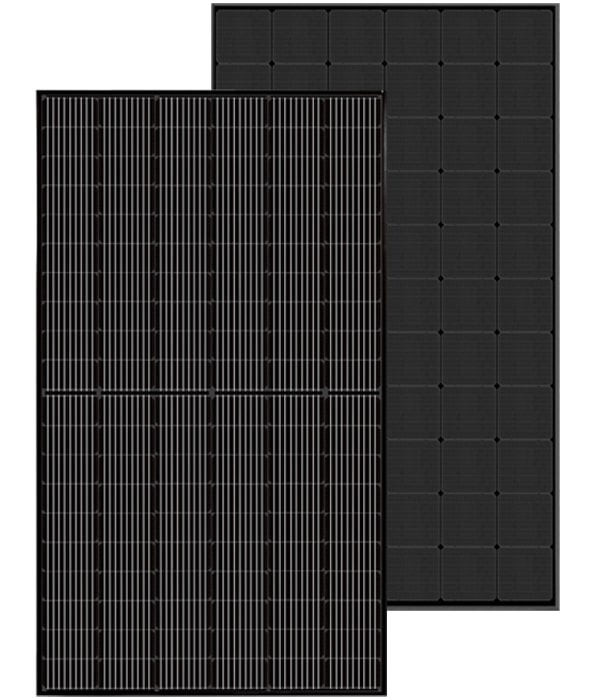
All-Black series
- Higher efficiency with 120 Mono PERC cells
- Response significantly well in extreme hot weather
- Highest efficiency 20.4%
- On average power (W) ranges between 335W—340W
- Tackles shading better than other panels
- 12 – 15 years of product warranty, with 25 years of service and power output warranty
- Better for residential purpose
- 35 mm coated aluminum alloy frames
HiDM series
- Monocrystalline cells
- PERC and shingle cell technology
- Module efficiency of up to 20.4%
- 0.55% annual degradation rate
- 25 years linear power output warranty, 15 years product warranty
- Ideal for residential installations
- HiDM solar panels can output a maximum of 420W on peak condition
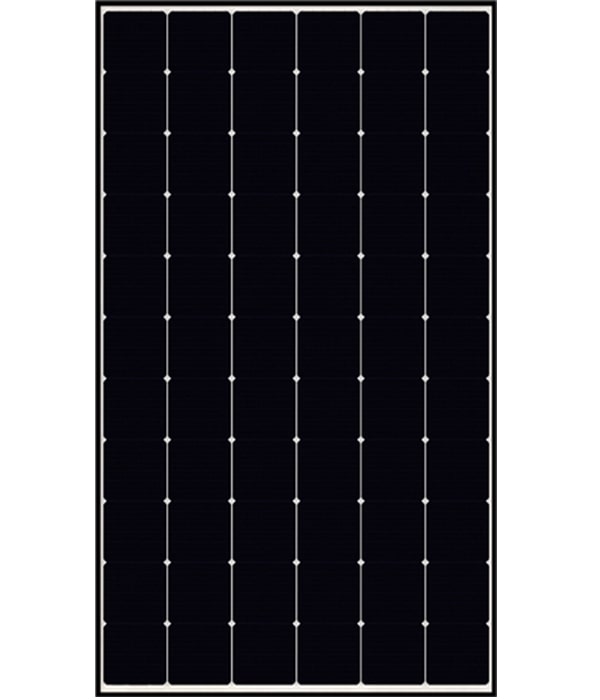
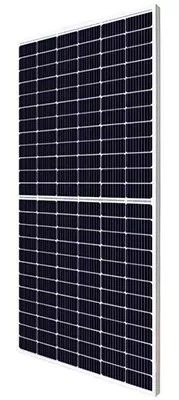
Ku series
- Monocrystalline and polycrystalline cells
- PERC cell technology
- Designed for residential purposes
- New panels can also work on commercial site
- Module efficiency ranges between 17.8% to 19.9%
- 0.5% annual degradation rate
- 6000/4000pa snow/wind load
- 25/30 years linear power output warranty
- 12 years product warranty
HiKu Series
- Monocrystalline and polycrystalline cells
- Can generate a maximum of 450W of energy
- Split-cell/multi-busbar technology
- Module efficiency of up to 20%
- But HiKu5, HiKu6 and HiKu7 panels are able to output more power. Ranges between 665W output with a module efficiency of up to 21.4%.
- 0.55% annual degradation rate
- 25 years linear power output warranty
- 12 years product warranty
- Ideal for both commercial and residential installations
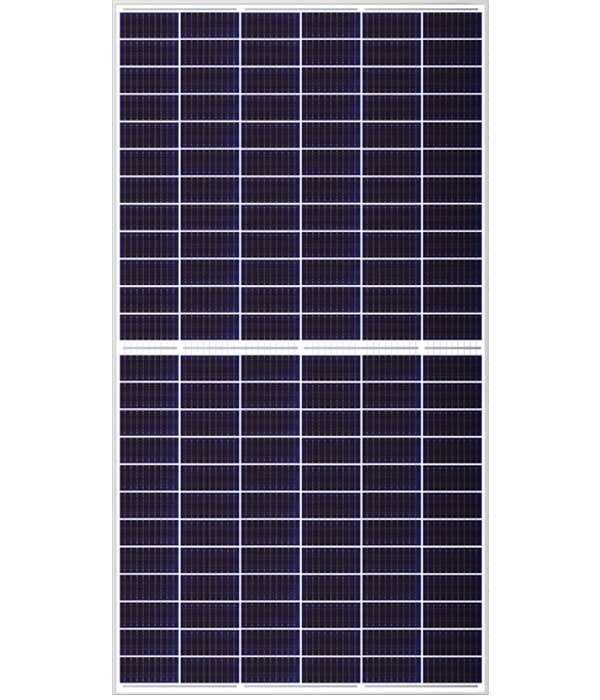
| | HiKu | Ku | HiDM | All Black |
|---|---|---|---|---|
| Power (W) | 320-460 | 430-450 | 400-420 | 320-340 |
| Efficiency (%) | 19.5 | 20.4 | 20.4 | 20.4 |
| Size (Inch) | 83×41.3×1.6 | 85.4×39.2×1.38 | 66.9×39.1×1.38 | 65.0×39.1×1.38 |
| Weight (LBS) | 54.9 | 52.2 | 42.3 | 40.1 |
| Features | High Output Poly Module | Bifacial Modules Add 30% Power | High-Density Mono Module | Better Shading Tolerance & Minimizes Micro-Crack Impacts |
| Operational Temperature Range | -40°C To 85°C | -40°C To 85°C | -37°C To 85°C | -37°C To 85°C |
| Annual Power Degradation | No More Than 0.55% | No More Than 0.55% | No More Than 0.45% | No More Than 0.45% |
| Product Warranty | 12 – 15 Years | 12 – 15 Years | 12 – 15 Years | 12 – 15 Years |
| Performance Warranty | 25 Years | 25 Years | 25 Years | 25 Years |
Cost
To get the best price, you should get multiple quotes from Canadian Solar. Checking out different products might help too. The final price depends on the equipment you get, based on your product. More specifically, the kind of inverter or battery you need with your panel depends on what panel you get. Most Canadian Solar PV systems are priced between $2.70 and $3.20 per watt, making them an excellent value in the home solar market.
This means that the gross cost of a 6 kW system (before any tax credits or other incentives) would range between $16,200 and $19,200.
Furthermore, most homeowners pay far less than the total gross cost. With the federal solar tax credit of 26 percent, a 6 kW system with Canadian Solar panels would cost between $11,988 and $14,208. And everyone is eligible for the said credit. Numerous state-level solar incentives and rebates are available to help you further reduce your upfront costs.
The table provides below is not an exact amount. Rather, it’s an approximate amount. Check out the best solar packages here.
| System Size (kW). | Average cost (with installation) |
|---|---|
| 6kW | $11,988 – $14,208 |
| 8kW | $13,500- $15,650 |
| 10kW | $16,550- $17,900 |
Efficiency
“Solar panel efficiency” refers to how effectively a solar panel captures and converts sunlight into usable electricity. A high-efficient solar panel can produce more electricity than a lower-efficient panel of the same size under the same conditions. As a result, a higher efficiency rating is generally preferred.
The efficiency of your Canadian Solar panels will differ depending on the model you select for your system. The efficiency rating of Canadian Solar panels ranges from 15.88% to 20.60%.
Performance (temperature coefficient)
The temperature coefficient indicates how well your solar panel will perform in less-than-ideal conditions. Like other electronic equipment, solar panels perform better when kept cool (ideally at temperatures around 25° C/77° F). The temperature coefficient indicates how much your panel performance will change during hot, sunny summer days.
Your solar panel’s electricity production decreases by a temperature coefficient for every degree above 25° C (77° F). The temperature coefficient of the Canadian Solar CS1H-325MS panel from their HIDM residential series, for example, is -0.37%/°C. This means that if the temperature of the panel rises by one degree, from 25° C (77° F) to 26° C (79° F), electricity production will fall by 0.37%. If the temperature rises to 35° C (95° F), electricity production will fall by 3.7%.
Your solar panels will most likely see a few hot and sunny days throughout the year, so they should have the lowest temperature coefficient possible.
The temperature coefficient of Canadian solar panels ranges between -0.41 and -0.35.
Warranties
Whether you’re purchasing a television, a car, or solar panels, the manufacturer should provide a strong warranty. The materials warranty (also known as the product or equipment warranty) of a solar panel is a guarantee from the manufacturer that they will replace your panel if it fails due to manufacturing defects or environmental issues.
Depending on the product line, Canadian Solar provides a warranty of up to 15 years for defects in their solar panels. Warranty claims were also made easier by the government of Australia.
Pros and Cons of Canadian Solar
Canadian Solar panels provide various options for solar systems. There are solar panels that range from average to extremely well-performing. However, it depends entirely on the user and what they are looking for in a solar panel; this determines whether it is worthwhile.
Everything has positive and negative aspects, and Canadian Solar is no exception. Here are some of the brand’s benefits and drawbacks:
Pros
- Canadian Solar Panels offer an excellent price-performance ratio.
- These panel manufacturers are less expensive than competing brands on the market.
- Split-cell technology is also included in most models’ modules.
- They have an average efficiency rating ranging from 16.88% to 20%.
- Customer service is available all over the world, including Australia.
- The majority of residential models include dual-cell PERC technology.
- Panels come with Tier 1 performance but offers a competitive price of Tier 2 models.
- Depending on the product, the warranty ranges from 15 years- 25 years.
- Government rebates and incentives are available
Cons
- Names of the solar modules can be confusing for native English speakers
- Efficiency may drop up to 0.55% yearly.
Are Canadian Solar Panels Worth Buying?
The decision to install Canadian Solar Panel is totally up to you. However, choosing Canadian Solar can provide value for money. Considering the efficiency, prices are quite competitive and better than other companies. For residential purposes, choosing Canadian Solar would be worth it.
